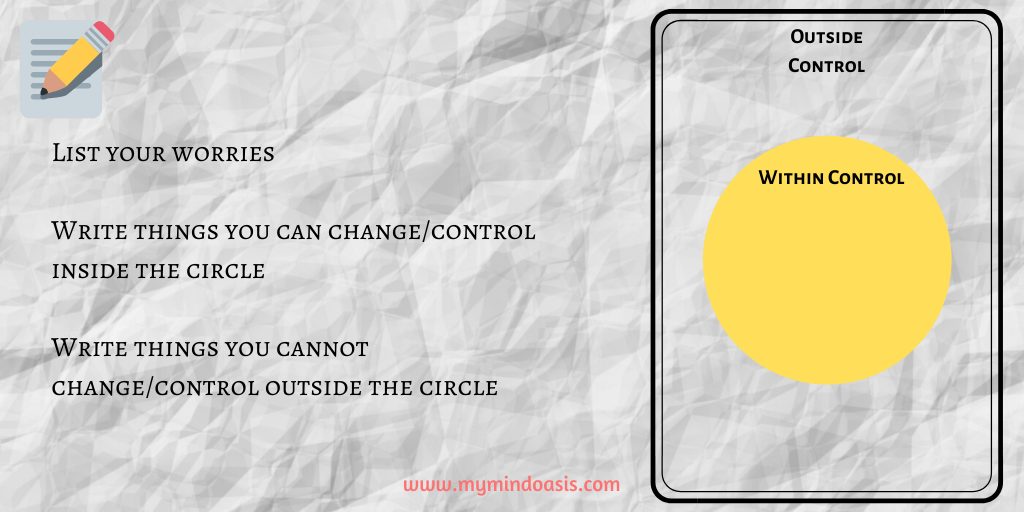Photo by Simon Matzinger on Unsplash
Many parts of the world are currently impacted by the outbreak of COVID-19 (a respiratory illness caused by Coronavirus). Amidst all the news and updates, it can be challenging to make sense of what is happening and what to expect in the coming days or weeks. In the face of such uncertainty, many have been feeling anxious, worried and confused. The contagious nature of the disease calls for quarantine and distancing as a means of infection prevention. This can feel isolating and may add to the sense of confusion and apprehension.
Stability plays an important role in our overall mental health and wellbeing. While we are equipped to handle stress, we also expect our surroundings (people and environment) to have a certain level of predictability. We want to know what happens next. We are drawn towards guides and templates that tell us “how to”. In the current scenario, when this very stability and predictability is at risk - it impacts our sense of safety. Across the world, many have to make a choice between risking infection and risking the loss of livelihood every day. Many others have lost their jobs or are struggling to keep a business afloat. Many cities are enforcing lockdowns. Parents are struggling with childcare in the face of school and daycare closures. Expats living away from families worry about their loved ones back home. Dysfunctional families are forced into close proximity – sometimes even when there is a risk for abuse.
Despite the differences, there is a helplessness to our situation that can’t be denied.
When the level of uncertainty is so high, it is natural to feel worried, vulnerable or even angry. Even if there is some comfort in the common experience of the current Corona-virus-related situation, it does not put an end to your anxiety. While a pandemic outbreak is an unfamiliar territory for all of us, the experience of uncertainty itself is not. In the face of such uncertainty, there are some things you can do to cope better and to restore some stability to your life.
Acceptance
Acknowledge that there is uncertainty. This means that you can‘t do everything exactly the same way as before. Accepting this allows you to cope better with change. The longer you stay in denial, the harder it becomes to embrace change. Naming what has changed helps you to get in touch with the feelings that come from facing uncertainty.
Change
Some habits, routines and practices will need to change in light of current circumstances. This can mean different things for different people. In my case, the biggest change has been the switch to online sessions instead of meeting clients in person. This, in turn, has meant that the habits which revolved around my daily commute have had to shift - including how I work, what I eat and how I plan for self-care.
Spend some time reflecting on what changes you have made or need to make. Giving yourself time to reflect on this helps in building a sense of order and control in chaotic circumstances.
Write
Speaking of control, I would like to share with you one of my favourite (and most effective) anxiety management tools. This involves recognizing what is within and outside the realm of your control. I recommend starting by setting aside 10-15 minutes to list all the things you are worried about. The writing itself provides a release from the vague, half-formed worries floating in your mind by defining them in concrete words. The next step is to take another sheet of paper and draw a big circle on it. Now go through each item on your list and re-write it either inside or outside the circle depending on what you can control (‘within control’) and what you can’t (‘outside control’). Keep this sheet handy and remind yourself of what is beyond your control the next time you find your level of anxiety growing. Redirecting your energy towards the items you wrote inside the circle will help regain a sense of control.
Boundaries
Another way to regain a sense of control and autonomy during uncertain times is practicing healthy boundaries. A particularly relevant aspect of healthy boundary setting is around consumption of news and information. The need to stay updated is understandable. Checking the phone or computer multiple times an hour is a norm for many of us. However, you might want to ask yourself how constant exposure to news and social media posts is affecting you. If it has been making you feel overwhelmed and panicked, you need to take a break. Limiting the number of times you check news, and assigning specific time(/s) of the day to get updates not only protects you from information overload, it also frees up mental space to focus on other essential tasks.
Be mindful not only of information consumption but also the sources you rely on for this. Stay updated with guidelines and safety measures and avoid flooding your newsfeed with unfounded speculation.
Practice Mindfulness
I highly recommend the practice of mindfulness - specially as a tool to feel grounded. Being mindful means being aware of the present moment and living it intentionally.
Being unable to plan ahead can feel unnerving. Try to work with what you have - whether it is for this hour, this day, this week - there is room to create routine and stability even if it is for a shorter span than what you are used to. Approach each day with curiosity and openness. Amidst all the change, it is important to remember that what worked yesterday may not work today. Scheduling a check-in with yourself at the beginning or end of each day can help you feel grounded.




